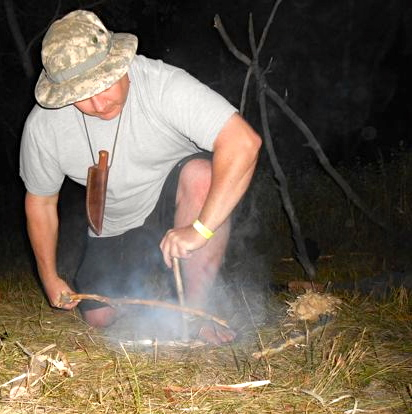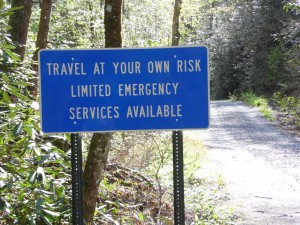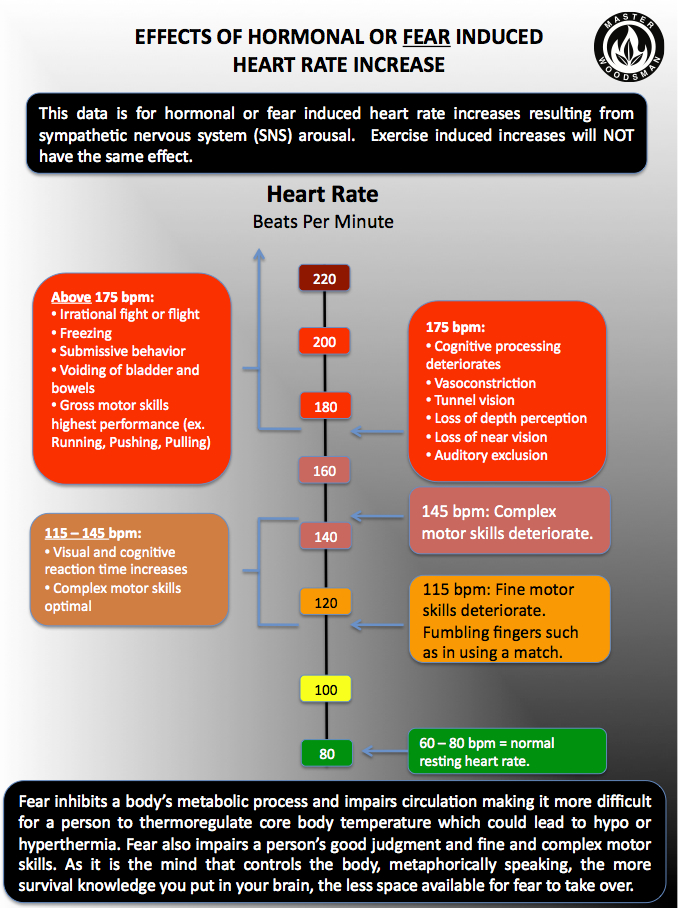Several weeks ago I taught another tree and plant identification class. As is usually the case, the majority of students were very interested in edible wild plants, most considering it a priority. After discussing ALL the different aspects one could learn about trees, and more importantly, why, edibility dropped lower on everyone’s list, especially for survival. I am not advocating you don’t learn edible plants by the way, I am simply suggesting with a little more knowledge and thought around your context, that priorities will likely change. For some of that context, please see my article, Edible Wild Plants for Survival, (Not) So Fast!
Interestingly, there was someone in the tree/plant ID class (extremely knowledgeable in his own right) who wanted me to see the country store down the road as they carried a lot of herbal medicine. I had been pointing out medicinal and other useful plants for the last 3 hours and thought I saw the connection he was trying make and obliged, a cold beverage sounded good too. As it turns out, he was really interested in me meeting the owner of the store.
Over an hour later and some understandable “tap dancing” from the store-owner’s side of the conversation, I surmised this person coordinated information, training, and supplies for the preppers in the area. What turned out to be an initial interest on their part about me teaching medicinal plants ended up being quite a bit more. This group of preppers was trying to figure out what exactly they should know for when the SHTF. The metaphor that shed light on the truth about edible wild plants used in the tree class was now in play on a much larger scale.
So, do preppers really need to know wilderness living skills? For me there are a thousand things that scream YES. But for the purposes of this article, let’s get it down to the least common denominator when it comes to survival; and that is maintaining your body, mind, and spirit.
BODY
First, we all live in one big wilderness, most just don’t realize it. And I am not talking about “wilderness” as defined by the Wilderness Act of 1964 (which is another debate and article). I am talking about as an environmental-system; everything is connected (period). Although in today’s modern culture, it doesn’t feel like we are connected to nature because we live in a box, use a box to adjust the box we live in, travel to other boxes in a box, eat out of a box, are entertained by box, and communicate more and more through a box.
Where once the campfire was an essential part of life, now man’s fire comes through a copper wire into and through our many boxes. Take that copper wire away, or the boxes for that matter, and what do YOU have left? In the blink of an eye you could be thrust back into the wilderness, only it was already there, waiting for you…
Superstorm Sandy, Katrina, extended blackouts, winter storms, ice storms, hurricanes, floods, tornados… don’t tell me those events or the aftermath don’t feel like being in the wilderness.
In taking care of your physical body, what applies in the deep woods applies in the city when you do NOT have a thermostat to control the temperature, a refrigerator to keep your food safe, potable water from the tap, the convenience of proper hygiene, 911 when your hurt, and much, much more. And if you think you are ‘good’ because you know the “Rule of 3’s,” there is far more to survival than those relatively inaccurate time factors most attribute as priorities.
So the practical answer to the question, “do preppers need wilderness survival skills?” is an obvious yes for skills that maintain one’s physical body; however, the skills themselves aren’t enough, which brings us to my second point.
MIND
“For a man who is lost, the three greatest dangers in order of importance, are Fear, Cold, and Hunger. He may endure extreme hunger for a week, and extreme cold for a day, but extreme fear may undo him an hour. There is no way of guarding against this greatest danger except by assuring him that he is fortified against the other two.” – ERNEST THOMPSON SETON, 1912, The Book of Woodcraft
Anyone can have a set of “skills” and still not “get it” when it comes to survival.
As an example, I know some world class flint knappers who never use their creations for their intended purpose. They can teach you how to knap an arrowhead that would kill an animal, but they can’t teach you how to hunt because they never have…
This metaphor is seen big time in survival. An instructor, or the ever-popular TV/YouTube personality, can absolutely have some skills, and as such, many will perceive them as an expert in survival, but that “expert” may not know how to put them all together just like in the example of our flint knapper. Far too many do not understand the physiological and psychological components of survival. And in some cases, they don’t even understand the physics of the environment they are teaching.
Now a Survival Related Example
 The bow drill method of friction-fire is a skill frequently taught for survival. If learned prior to being proficient in modern fire methods, this could actually be a disservice if the instructor doesn’t explain (or know) the full context. Have you tried doing the bow drill when you are scared or hurt? How long will it take to collect the materials (assuming you can even find those that will work)? How long does it take you to craft a set? What about in the dark (have you tried it blindfolded)? Have you done it in the rain? What about with numb hands? And so on… While I used the bow drill here as an example because of its popularity in survival instruction, there are many to chose from.
The bow drill method of friction-fire is a skill frequently taught for survival. If learned prior to being proficient in modern fire methods, this could actually be a disservice if the instructor doesn’t explain (or know) the full context. Have you tried doing the bow drill when you are scared or hurt? How long will it take to collect the materials (assuming you can even find those that will work)? How long does it take you to craft a set? What about in the dark (have you tried it blindfolded)? Have you done it in the rain? What about with numb hands? And so on… While I used the bow drill here as an example because of its popularity in survival instruction, there are many to chose from.
So in my opinion, a prepper (and woodsman) not only has to have the skills, but the context to understand when and where to apply their skills and how they impact the human body and mind, especially when needed most.
“Mother Nature is a terrible instructress. She will give you the exam first and the lesson after, if you are still alive to appreciate it.” – Mors Kochanski
You see, survival is a lot like learning to swim. However, in the case of swimming, the instructor has the student in the ‘real world’ as they are taught in the water. The instructor is right there with their student, sink or swim. Failure is obviously not an option and the student learns to swim.
 Whereas, in survival training, the student is usually NOT in the wilderness, dog-tired, dehydrated, sleep-deprived, wet, suffering, and/or in the cold when needing to make tough decisions and execute on a skill; all with the ever-present fear of the unknown, discomfort, failure, being alone, darkness, personal guilt, and death creating a chemical cocktail in their bloodstream impacting their judgment, dexterity and the way their body regulates temperature. The “survival instructor” (also read YouTuber, Blogger, Forumite, etc.) can get away with the poor instruction where the swim instructor cannot.
Whereas, in survival training, the student is usually NOT in the wilderness, dog-tired, dehydrated, sleep-deprived, wet, suffering, and/or in the cold when needing to make tough decisions and execute on a skill; all with the ever-present fear of the unknown, discomfort, failure, being alone, darkness, personal guilt, and death creating a chemical cocktail in their bloodstream impacting their judgment, dexterity and the way their body regulates temperature. The “survival instructor” (also read YouTuber, Blogger, Forumite, etc.) can get away with the poor instruction where the swim instructor cannot.
There is a reason our military does realistic field exercises and the competent outdoor instructors take their students into the backcountry. It’s as my Grandmother used to say to me, “experience is the best teacher, but it’s also the hardest.” Please note however, I am not saying you have to put yourself in a bad situation to learn survival skills, although being pushed does help. What I am saying though, is you need to learn more than just the skills. You need to know the context too!
Remember, your mind controls your body. If you know how YOU relate to the environment and have the basic knowledge to adapt to those conditions, with it comes confidence. Confidence allows you to execute. Lack the confidence and your body can slip away from your mind as outlined in the included graphic below whose data originates from early combat studies.

Just one example of the psychological and physiological understanding a survival instructor should posses.
In a stressful situation with a hormone induced nervous system response where fine and complex motor skills are compromised, striking a match may be extremely difficult let alone doing the bow drill. If your instructor didn’t share that context, all they gave you was a skill, and perhaps one that would make a bad situation worse should you find yourself in a survival situation.
Survival is 100% mental because the mind controls the body, its actions and reasoning. Since it is so powerful, we must understand and recognize the conscious level dangers and even consider some of the unusual functions of the subconscious mind.
The Bible says, “As he thinketh in his heart, so is he.” The truth in those few words is evident every day. If a man says he feels lousy – he will. If a man says he feels great – chances are he will – all day. The same applies to any given task. If you think it will fizzle, it will. If you are convinced you can do it, more often than not you will succeed. – GENE FEAR, Surviving The Unexpected Wilderness Emergency
SPIRIT
Gene Fear’s above quote also relates to one’s Spirit, which defined is — the nonphysical part of a person that is the seat of emotions and character; the soul.
Examples of Spirit are many, but here we will try to keep it related to our topic. First, I would argue an indigenous person in their environment is the spirit of the land. There is no need for survival skills as they are truly one with the environment and simply living in what is their home. A Master Woodsman is or approaches that same spirit through extensive knowledge of the environment and their place within it. Most in our society do not have this luxury, so we must attempt to make ourselves in-tune to the environment in other ways, primarily through increasing our knowledge and awareness.
Using as our guide that old saying, knowledge is power, survival learned in the right context, which includes a basic understanding, thru education and/or experience, of how a person relates to the environment and the basic skills to address those conditions, self-assurance will exist. And that self-assurance will keep the mind in check and thus the body (externally and internally).
Spirit is also the right attitude and a will to live, all of which is the essence of who you are and may carry you through an ordeal. This you will have to discover for yourself. Although, I can tell you unequivocally it is easier to find the more you train and spend time in the field.
CONCLUSION
This article was not intended to be a how to. It’s intent was to discuss holistically the why of why I believe preppers should know wilderness survival skills; and that is, they share the same least common denominators — physically, psychologically, as well as the same physics apply across our one wilderness.
That being said, whether a prepper or woodsman or both, context is key. As you approach your learning, think not only of the skills you are learning, but how they truly relate to you and how they apply to the environment. Proper survival knowledge will keep your Mind (fear) in check, thus allowing your Body and Spirit to be maintained.
Finally, while there are many sources of information out there on skills, there are far fewer on how they relate to your OVERALL wellbeing. Nonetheless, please note the suggested sources of information below are far from an end all be all list. I am happy to update if you have any suggestions.
Survival Schools – We keep a list of reputable schools here are on the website, however, as Master Woodsman is inclusionary to all outdoor living skills, some schools are focused solely on primitive skills, so do your research as suggested on those pages. Also, Woodsmoke Camping Company (of which I co-own), offers a Basic Outdoor Living Skills (BOLS™) class with foundational information up front — this let’s you put into context what you already know, teaches basic survival skills with a focus on temperate climates, as well as points you in the right direction of skills to go after on your own or with other schools.
Literature – again, not an end all be all list, but the following does offer foundational considerations to your overall well being of which I highly recommend.
98.6 Degrees; The Art of Keeping Your Ass Alive!
When All Hell Breaks Loose: Stuff You Need To Survive When Disaster Strikes
Basic Safe Travel and Boreal Survival Handbook
Additional Items of Interest
Edible Wild Plants for Survival, (Not) So Fast!
Knowledge vs. Common Sense for Wilderness Living Skills and Survival
Great Survival Quotes
Promoting Outdoor Living Skills


4 Responses to Do Preppers Really Need to Know Wilderness Survival Skills?